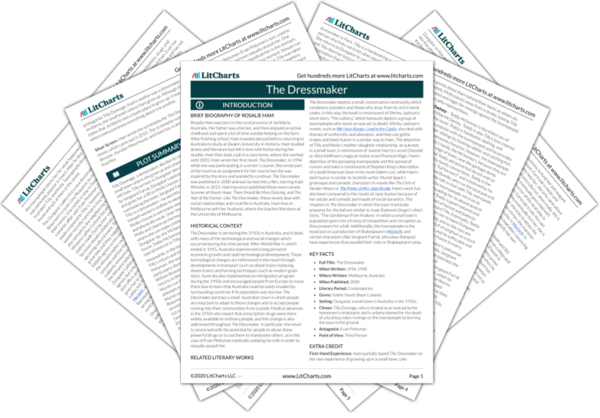The Dungatar residents organized the play so that they could show off how refined and cultured they are. However, according to the conservative behavioral standards of the 1950s (when the story is set), they are not refined at all and do not know how to conduct themselves respectably. Ironically, Mona’s behavior is in line with more modern interpretations of this scene in the play and reflects how the scene was originally meant to be played. Although the conservative audience think that they are honest and respectable, really, their honesty is based around a provincial and old-fashioned type of morality which views female sexuality as shameful. Inadvertently, Mona has been too honest in her performance as Lady Macbeth and has made the audience uncomfortable. This shows that although conservative morality may claim to value honesty, those who abide by these beliefs do not want to be confronted with anything which feels unfamiliar or uncomfortable.


